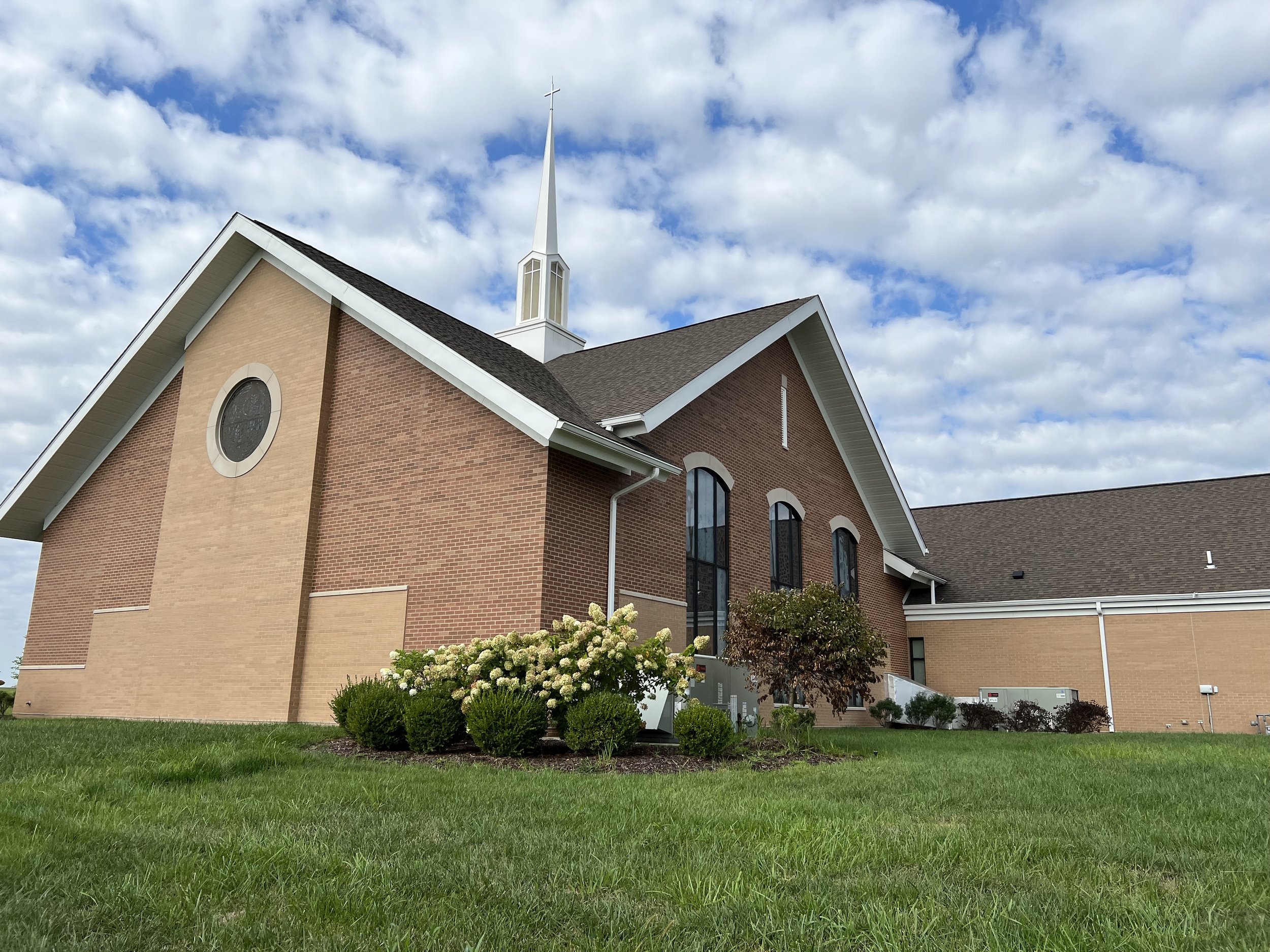
I’m New Here…
WHAT TO EXPECT
Worship services are held on Sundays at 8:30 a.m. and 10:45 a.m. A children’s message is provided during the later worship service, followed by Sunday School classes for children in the education wing. The early service is slightly shorter, but neither service exceeds one hour in duration.
In keeping with our Protestant Reformed heritage, the reading of scripture and preaching of a sermon are central. These elements are preceded and succeeded by music (e.g. choral, instrumental, or unison songs) and blended with spoken elements (such as pastoral prayer and participatory readings). The sacrament of the Lord’s supper (communion) is featured normally on the first Sunday of the month. The sacrament of baptism is included when children are presented for this special blessing, or previously unbaptized adults join the church.
Our worship experiences are rich, and defy easy categorization. But it would be fair to say that our worship services are meant to inspire reverence for God and devotion to God’s purposes. Sermons take the Bible seriously, but not literally in a Fundamental manner, always sensitive to the historical context and literary genres of the authors to whom God spoke, and with the belief that through the Bible, God continues to speak to us in fresh and relevant ways. Our music will seem more “traditional” than in some congregations, but often you will hear relatively new compositions. Our experiences of worship are supported by the artistic design of our new space, our windows, our instruments, and our furnishings.
WHY YOU MAY WANT TO JOIN US
If you ask a random sampling of worshipers why they worship here rather than elsewhere, one common theme will be the quality of the music program, which is led by a beloved choir director and esteemed organist, and supported by many fine volunteer musicians. Another theme would be the style and quality of the sermons, usually thought-provoking, often challenging, but never dogmatic, always respecting each listener’s ability to struggle with issues and make personal choices appropriate to his or her circumstances. Still another theme would be the personal attention and nurture given to children and youth, supporting each parent’s desire to raise up her or his child as a disciple of Jesus Christ. Finally, while many people think of Presbyterians as elitist or stiff-minded (“God’s frozen chosen”) those who attend will find the exact opposite, a congregation that is diverse in many respects, has experienced God’s grace, and sincerely tries to extend that grace to all.
THE MEANING OF MEMBERSHIP
Member candidates are approved by our governing board, called the “session.” There are four simple membership vows. If you can affirm these vows, then you can be a member!
Trusting in the gracious mercy of God, do you turn from the ways of sin and renounce evil and its power in the world? (I do.)
Do you turn to Jesus Christ, and accept him as your Lord and Savior, trusting in his grace and love? (I do.)
Will you be Christ’s faithful disciple, obeying his Word and showing his love? (I will.)
Will you be a faithful member of this congregation, share in its worship and ministry through your prayers and gifts, your study and service, and so fulfill your calling to be a disciple of Jesus Christ? (I will.)
For those who would like to look more deeply at the meaning of membership, our Presbyterian constitution describes a faithful member as one who accepts Christ’s call to be involved responsibly in the ministry of the Church. Such involvement includes
proclaiming the good news,
taking part in the common life and worship of a particular church,
praying and studying Scripture and the faith of the Christian Church,
supporting the work of the church through the giving of money, time, and talents,
participating in the governing responsibilities of the church,
demonstrating a new quality of life within and through the church,
responding to God’s activity in the world through service to others,
living responsibly in the personal, family, vocational, political, cultural, and social relationships of life,
working in the world for peace, justice, freedom and human fulfillment.
While no one person can exercise responsible involvement in all these areas equally and at the same time, together we are the body of Christ, and our collective efforts make a powerful difference in fulfilling our mission.
